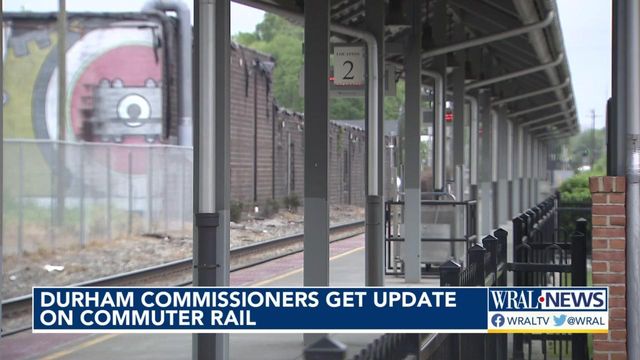Durham gets update on commuter rail proposal
Durham commissioners got an update Monday from GoTriangle on its feasibility study of a commuter rail line connecting Durham and Wake Counties and possibly Johnston County.
Posted — UpdatedDurham County alone is expected to add 100,000 people in the next 25 years. The Triangle overall is expected to grow by about 600,000 during that period.
Durham County commissioners got an update Monday from GoTriangle on a proposed commuter rail line connecting Durham and Wake Counties. The line would run 37 miles with stops in Durham, Raleigh, Cary, Morrisville, RTP and Garner, with a possible expansion to Clayton.
It would use the existing railway corridors and would share some existing track with current passenger and freight traffic along the NC Railroad line, but more capacity would need to be added.
GoTriangle says they’re currently working on three studies: a rail analysis of where the stops could be and what the schedules should be; an opportunity analysis of what would this mean for affordable housing, job access and job creation; and public engagement in the concept from businesses, colleges, commuters, and the railroads currently using the corridor.
People we spoke with at the Durham bus station Monday hoped this proposed project fares better than the light rail did.
Durham resident Ralph Bolton takes the bus now, but would be very interested in the option of a train, especially for getting to Raleigh to see friends and family.
"It would help a lot of people as far as employment concerns, because to be honest with you, as lovely as these buses are, sometimes it can be a little bit erratic," Bolton told us.
Vera Taylor also uses Durham public transportation every day. She said she would take the train "because it’s better transportation than the city buses," and it could open up employment opportunities for her, too.
The project is far from a done deal. It's still very much in the planning phases. If all goes according to plan, GoTriangle estimates the commuter line could be up and running by 2029.
• Credits
Copyright 2024 by Capitol Broadcasting Company. All rights reserved. This material may not be published, broadcast, rewritten or redistributed.






